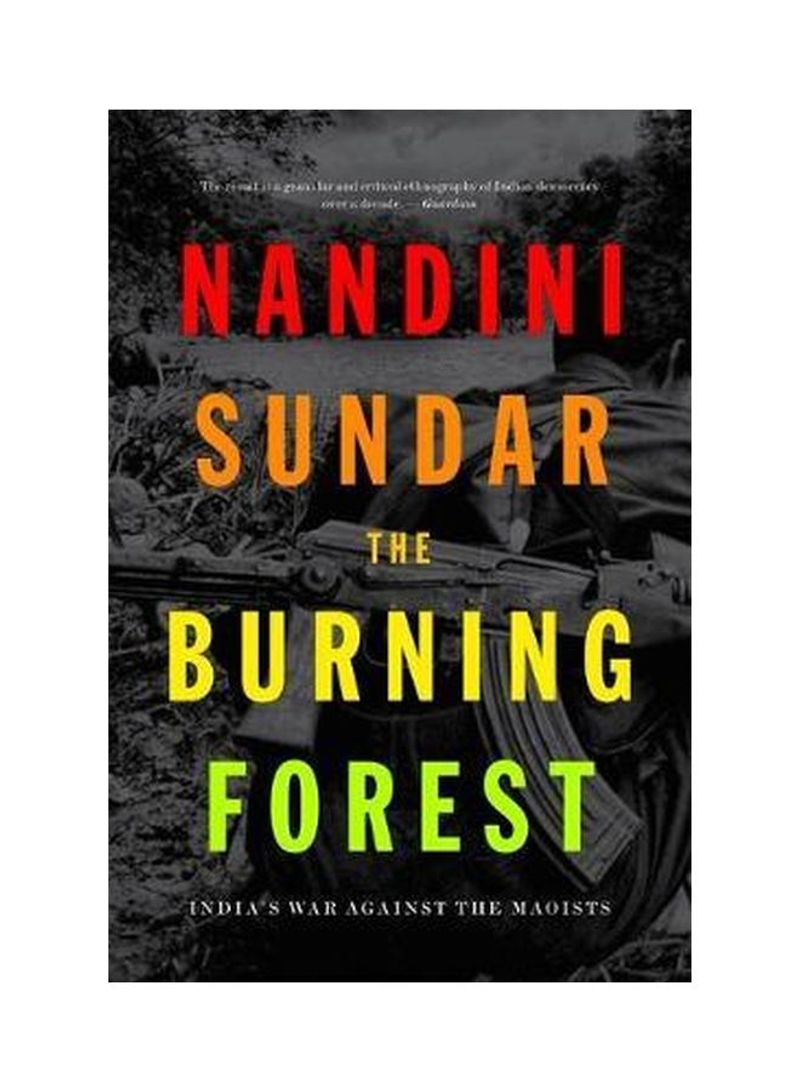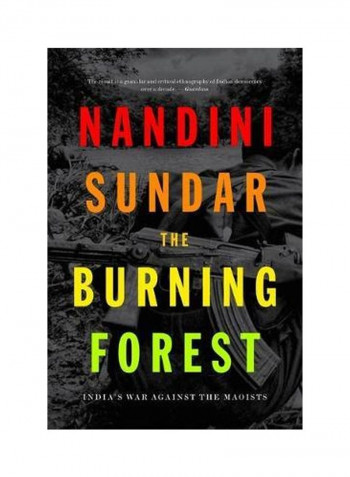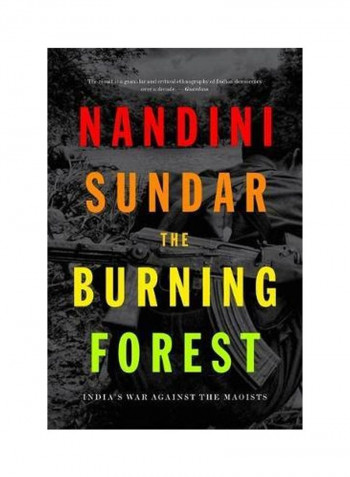The Burning Forest: India's War Against The Maoists Hardcover
Recommend
Sort by
Rating
Date
Specifications
Grade
New
Author 1
Nandini Sundar
Book Description
The Burning Forest is an empathetic, moving account of what drives indigenous peasants to support armed struggle despite severe state repression, including lives lost, homes and communities destroyed.Over the past decade, the heavily forested,mineral-rich region of Bastar in central India has emerged as one of the most militarized sites in the country. The government calls the Maoist insurgency the biggest security threat to India. In 2005, a state-sponsored vigilante movement, the Salwa Judum, burnt hundreds of villages, driving their inhabitants into state-controlled camps, drawing on counterinsurgency techniques developed in Malaysia, Vietnam and elsewhere. Apart from rapes and killings, hundreds of 'surrendered' Maoist sympathisers were conscripted as auxiliaries. The conflict continues to this day, taking a toll on the lives of civilians, security forces and Maoist cadres. In 2007, Sundar and others took the Indian government to the Supreme Court over the human rights violations arising out ofthe conflict. In a landmark judgment, the Court in 2011 banned state supportfor vigilantism. The Burning Forest describes this brutal war in the heart of India, and what it tells us about the courts, media and politics of the country. The result is a granular and critical ethnography of Indian democracy over a decade.
ISBN-13
9781788732529
Language
English
Publisher
Verso Books
Publication Date
09 Apr 2019
Number of Pages
400
About the Author
Nandini Sundar, professor of sociology, Delhi University has been visiting Bastar for over 25 years. Her first book, Subalterns and Sovereigns: An Anthropological History of Bastar (1854-1996) is an authoritative account of Bastar's colonial and post-colonial past.
Editorial Review
"A very important and interesting book which should be widely read ... A deeply disturbing analysis of the sacrifice of tribal lives and communities caught between the camouflaged barbarity of the security forces and the violent arrogance of a deflected rebellion. The appeal for reasoned humanity cannot be any stronger--or more eloquent--than this." --Amartya Sen "How does democracy affect the prosecution of civil war? Nandini Sundar explores this question with untold courage and fierce determination in her remarkable extended ethnography of counter-insurgency in Chhattisgarh (India)--a desperate struggle to clear the land for mineral exploitation. Starting from poor adivasi villagers, aided and abetted by Naxalites, Sundar lays out in dispassionate detail the history of escalating violence, spurred on by the atrocities of a state-sponsored vigilante group and special police force. Stung by the lack of interest in the Indian media and parliament, she and two collaborators pursued and finally won a Supreme Court case against the state of Chhattisgarh. But, again, with no obvious effect. By multiplying opportunities to contest state violence, democratic institutions may have moderated but also extended the civil war. A rare and brilliant treatment of a topic few social scientists would dare to touch, let alone examine at such close quarters and for over two decades." --Michael Burawoy



